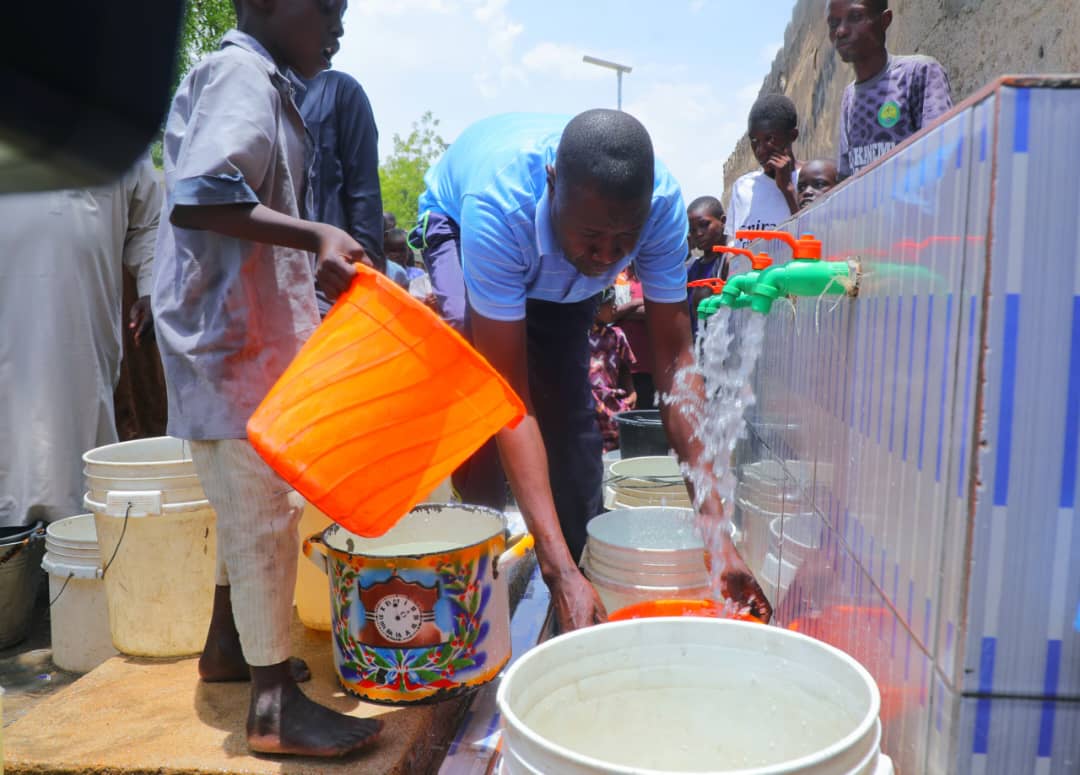BY MUSA IDRIS UMAR
Borno State Governor, Prof. Babagana Umara Zulum, has launched a massive water infrastructure recovery plan aimed at restoring access to clean water for thousands of residents displaced by the September 10, 2024 flood disaster.
The unprecedented flood — which crippled key infrastructure, including pipelines supplying water from Alau Dam — left parts of the city, especially densely populated communities like Gwange, Mafoni, Wulari, and Lamisula, battling severe water shortages.
The governor responded with urgency in a statement on Saturday, unveiling a strategic intervention that includes the construction of 50 upper aquifer boreholes, rehabilitation of old water points, and the conversion of 48 lower aquifer boreholes to hybrid solar-powered systems.
'We are committed to ensuring that no resident of Maiduguri is left behind in accessing clean, portable water,' Gov. Zulum affirmed through the Borno State Rural Water Supply and Sanitation Agency (RUWASA), which is spearheading the project.
The General Manager of RUWASA, Dr Mohammed Musa Aliyu, who led journalists on a tour of the project sites, noted that over 25 new boreholes have already been drilled across the city, with Mafoni alone receiving 10 — five newly constructed and five rehabilitated.
'These interventions are not just a quick fix,' said Dr Aliyu.
'They are long-term investments in community resilience. Some of the boreholes we’re upgrading date back over 40 years. We’re now equipping them with 50-horsepower solar systems that can pump water to a radius of five kilometres.'
He added that another 10 lower aquifer (ruwan zafi) boreholes are under construction to further bolster water availability in flood-ravaged areas.
The impact of the intervention is already being felt. In communities like Kasuwan Gwoza, Shuwari, Bulabulin Ngarannam, and Federal Low Cost, residents now report steady access to water — a sharp contrast to the weeks of hardship following the flood.
Mafoni residents, among the hardest hit, praised the governor’s rapid response: 'We used to wake up before dawn to queue for water. Now, with these boreholes, our children can go to school on time, and our homes have water throughout the day,' said a community spokesperson.
As RUWASA ramps up implementation, Dr Aliyu assures that the worst is over: 'In the coming weeks, insha Allah, Maiduguri’s water problem will be history.'

